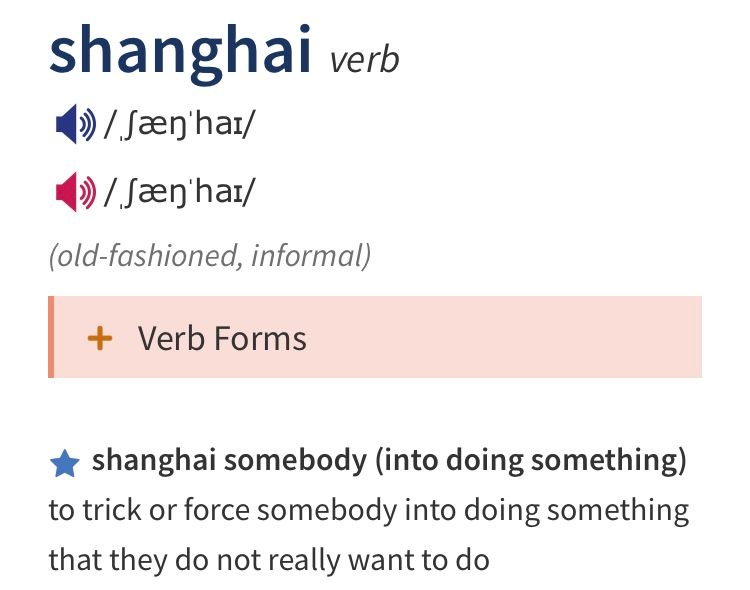He was "Shanghai"
I've been a little busy recently, but I just noticed an interesting piece of cold knowledge, and I couldn't help but want to share it.

It turns out that a person in Shanghai can be used as a verb in English to solve coercion or abduction. For example:
The two groups were shanghaied into signing the agreement, despite their objections.
The two groups were forced to sign the agreement regardless of their objections.
The homeless are being shanghaied off the streets in some cities.
In several cities, rough sleepers are being evicted.
This usage originated in the mid-nineteenth century, when maritime trade was booming, but the West Coast of the United States was short of sailors, perhaps because sailors were a dangerous business at the time. It is reported that many captains took advantage of this, such as stunned victims and then thrown on the boat to sea, so as to guarantee labor. And Shanghai was the end of the flight that everyone was familiar with at the time. Whenever the victim disappeared on land, the person who left behind would say lightly: "He was in 'Shanghai'". When he understood it, everyone knew that he was already at sea. The situation is quite similar to the so-called "selling piglets" in Cantonese.
But this usage is outdated after all. Like many tide words that have long become old-fashioned, it is a fossil of the past.
Like my work? Don't forget to support and clap, let me know that you are with me on the road of creation. Keep this enthusiasm together!

- Author
- More